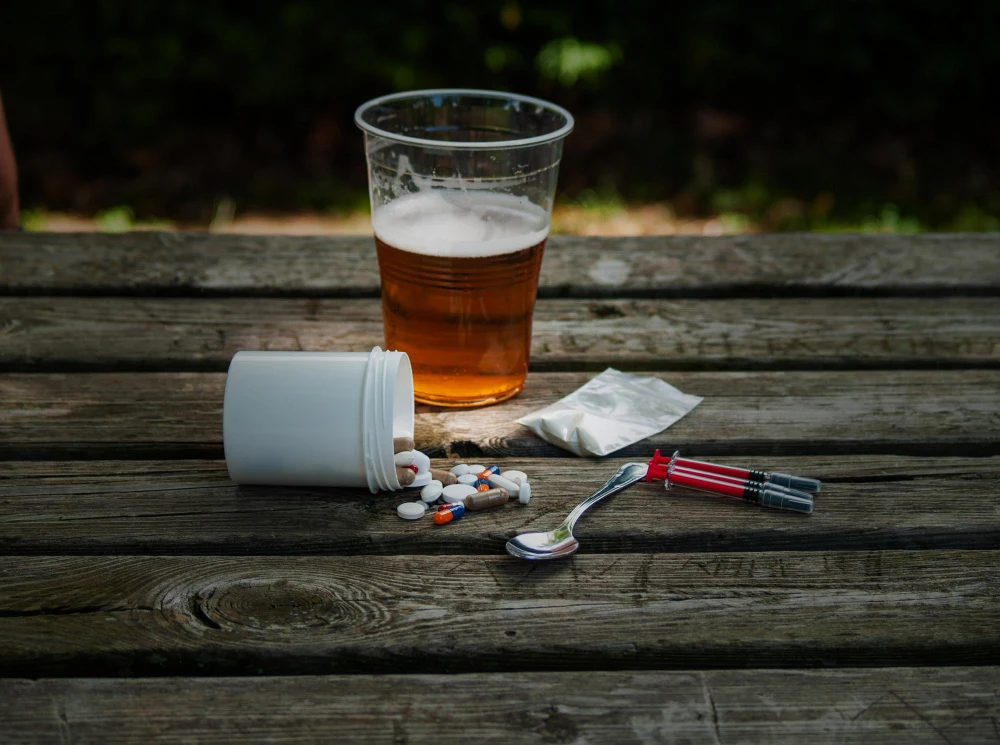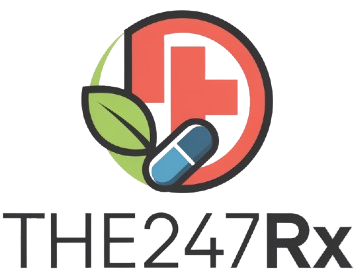 We’ve all done it: it’s the end of the day and the headache is coming on, or you’ve pulled a muscle at the gym and you’re in agony. You pop a painkiller.
We’ve all done it: it’s the end of the day and the headache is coming on, or you’ve pulled a muscle at the gym and you’re in agony. You pop a painkiller.
But what about if you’ve had a drink, or are on other medications? It seems innocent enough to take painkillers with alcohol or other drugs. However, it can have serious consequences.
Knowing about the dangers of mixing painkillers with other things is important. There is little awareness about the serious, sometimes fatal dangers from taking same common items together.
Here, we will examine the issue of mixing painkillers with alcohol or other medications and present it in such a way that makes it clear why combining these substances is a dangerous thing to do.
Why Continue Reading This Article?
You might have read a thousand articles warning against drinking alcohol when you’re taking drugs. But this is not that article. This is a guide, a real one.
We are going to look at the science, plus real examples and the kind of advice that, if followed, will save you from making easily avoidable mistakes that could wreak havoc on your body.
We’ll not just tell you why it’s dangerous, we’ll tell you what happens, how other drugs work alongside alcohol, and what you should be looking out for.
Whether you’re taking Nurofen once in a blue moon, or prescription medicines every day, by the end of this guide you will be better informed of the risks than you ever have been before.
What Are Painkillers, Exactly?
Before we get to the risks, let’s define what painkillers are, and what they do. Painkillers, also called analgesics, is the general term we use to describe drugs that act on pain.
Some are available without a prescription (over the counter or OTC), including acetaminophen (e.g., Tylenol) and ibuprofen (e.g., Advil). Others are prescription drugs, and are generally more potent, including opioids such as oxycodone and hydrocodone, as well as NSAIDs such as naproxen.
Any of these painkillers can be a powerful pain-reliever but each does so by a different mechanism, carrying its own risks. But when taken with a drink or other drugs, those risks multiply.
The Hidden Dangers of Mixing Painkillers with Alcohol
The most prevalent – and dangerous – mistake is combining painkillers with alcohol, and it’s easy to see why. What’s the harm in taking a couple of ibuprofen for your back pain and enjoying a pair of drink with dinner?
But, here’s the thing: painkillers and alcohol don’t belong in the same room.
1. Acetaminophen (Tylenol) and Alcohol
Both acetaminophen (Tylenol) and alcohol are metabolized in the liver. The liver digests alcohol, which explains why we have a hangover the morning after a party. But when alcohol is combined with the largest daily dose of Tylenol, the liver is overtaxed, and eventually becomes damaged. The damage can be so severe that it cannot be reversed.
In a study, Aditi Ghosh, Isaac Berger, Christopher H. Remien, and Anuj Mubayi employed a mathematical model to evaluate alcohol’s impact on acetaminophen-induced liver damage. That demonstrates the multiple effects of alcohol as both protective (acutely inhibiting an unsafe metabolite) and harmful (long-term use induces enzyme activation and toxicity). They determined that the time of onset of alcohol and acetaminophen intake was an important predictor of liver damage (source: The Role of Alcohol Consumption on Acetaminophen Induced Liver Injury: Implications from A Mathematical Model).
2. Ibuprofen (Advil) and Alcohol
 Ibuprofen, for example, is an NSAID (nonsteroidal anti-inflammatory drug). These drugs relieve pain and inflammation, but when paired with alcohol, ibuprofen can cause stomach bleeding, gastric ulcers and kidney damage. Alcohol irritates the stomach lining, and NSAIDs increase the risk of stomach ulcers – double trouble for your digestive system.
Ibuprofen, for example, is an NSAID (nonsteroidal anti-inflammatory drug). These drugs relieve pain and inflammation, but when paired with alcohol, ibuprofen can cause stomach bleeding, gastric ulcers and kidney damage. Alcohol irritates the stomach lining, and NSAIDs increase the risk of stomach ulcers – double trouble for your digestive system.
As noted in a study by Naoyoshi Nagata, Ryota Niikura, Katsunori Sekine and colleagues in Japan, alcohol consumption and taking nonsteroidal anti-inflammatory drugs (NSAIDs), the group of drugs that include ibuprofen, are risk factors for stomach ulcer bleeding. They used data from 230 confirmed peptic ulcer bleeding patients and 920 controls, a total of 1,150 subjects.
We found that alcohol consumption, history of peptic ulcer, H. pylori infection, NSAIDs use, and low-dose aspirin use were independent risk factors for PUB, whereas H. pylori-eradication, PPIs use, and H2RA use reduced its risk. Interactions between H. pylori and NSAIDs use in PUB were not observed. No antihypertensive drug was associated with PUB (source: Risk of peptic ulcer bleeding associated with Helicobacter pylori infection, nonsteroidal anti-inflammatory drugs, low-dose aspirin, and antihypertensive drugs: A case-control study).
3. Opioids and Alcohol
This is where it all goes very wrong. Opioids such as oxycodone and hydrocodone are potent painkillers prescribed to treat severe pain, but they depress the central nervous system, which is responsible for vital functions such as breathing and heart rate. And as opioids are also depressants, mixing them with alcohol, which is also a depressant, can easily result in respiratory failure or overdose, both fatal.
Picture This: Ordinary prescription opioids taken for pain after a surgical procedure mixed with alcohol (so much for being careful!). Now our patient, who has gone out for a drink with friends, is in a coma or not breathing at all. This is usually a tragedy but it’s also usually preventable.
There is not much research on consuming alcohol and opioids at the same time, but there is evidence that this is common and most likely contributes to opioid overdose deaths and mortality. A combination of alcohol and opioids also leads to less successful treatment for either (source: National Institutes of Health).
Why These Interactions Happen: The Science Behind It
So why are these combinations so hazardous? Mostly it’s a matter of how your body handles them. Your liver and kidneys are working to break down medicines, alcohol and other agents. When you take multiple meds or combine alcohol with drugs, you overwhelm your system, making it harder for your liver and kidneys to do their job. This can result in:
- Toxic buildup of medications or alcohol in your body
- Increased risk of overdose or poisoning
- Heightened side effects, such as drowsiness, dizziness, or confusion
- Long-term damage to your liver, kidneys, or digestive system
How to Safely Take Painkillers Without Risking Dangerous Interactions
The good news is that such incendiary mixtures are easy to avoid once you understand why:
1. Check the Label
Read the label. Seriously, read it. All the drug interactions are printed there, usually in the tiny print on the back of the box. It’s probably going to tell you that if you drink alcohol or take other drugs, this is going to be bad for you.
2. Talk to Your Doctor
 If you are on a prescription, be sure to ask your doctor about potential interactions. If you drink (or take other medications, legal or otherwise, on a regular basis), be honest about it. Your doctor can adjust dosages or offer other, safer alternatives.
If you are on a prescription, be sure to ask your doctor about potential interactions. If you drink (or take other medications, legal or otherwise, on a regular basis), be honest about it. Your doctor can adjust dosages or offer other, safer alternatives.
3. Avoid Mixing Medications Without Advice
Make sure you know if you can use the painkiller with another medication or alcohol, however. If you are not sure, do not guess. Check. Better to be safe and precautious than to take a chance with damaging side effects.
4. Limit Alcohol
You may be tempted to ‘take the edge off’ with a drink, but if you’re on pain medication, especially opioids or NSAIDs, it’s better to abstain. If you’ve been drinking and want to take something for pain, go for non-drug remedies such as ice packs, heat or rest.
5. Be Mindful of Hidden Ingredients
Many cold and flu medications, and combination drugs, include acetaminophen (paracetamol) or ibuprofen – often without the label making it clear. Check the ingredients to make sure you aren’t doubling up.
Don’t Play With Your Health
Mixing painkillers, whether OTC medications such as ibuprofen or prescription opioids, with alcohol or other drugs can feel innocent in the moment, but the potential dangers are very real. Make sure you check twice before combining painkillers with alcohol or other drugs. Your health is worth it.
If you’ve ever taken two or more meds without knowing that you should never combine them, you’re not alone. Being aware of the potential danger is a first step towards preventing it.
Where to buy painkillers
Here are the most reliable and trusted sites where you can purchase painkillers:
| PillHeal | ✅ Discounted prices ✅ Free shipping on orders over $200 |
Visit |
| ReliableRxPharmacy | ✅ Quick and easy ordering ✅ Reliable customer service |
Visit |
Do you take medications for other conditions or health problems?
Have you ever had an interaction between those and a pain medication that’s bothered you? Talk about it here, and tell us how you avoid dangerous combinations and side effects. We want so much to help each other make better, safer choices, and your input is a vital part of that process.
